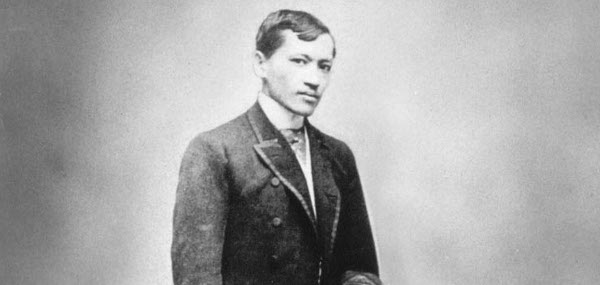 |
| Source: https://ourhappyschool.com/philippine-studies/jose-rizals-education |
There will always be three groups
regarding the issue of the national hero's retraction. The catholic Rizalists,
those who believe Rizal retracted; the Masonic Rizalists, who follows the
belief that Rizal did not; and You, the audience that will decide which of the
two sides you identify yourself with. A series of analysis on the data and
resources that are available, and the keen interpretation of the series of
events that occurred, especially on the gap of years where these accounts
went missing. This should be the first and only criterion on dwelling on
this intriguing topic that mainly focuses on maintaining on being objective as
much as possible. Yet the whole process shifts to being subjective as we weigh
the indications of every single detail.
From the accounts, the versions
are said to have had major differences in words used, numbers of punctuation
marks and the flow of paragraph placing. There is anomaly here that can be
observed which gives us a hunch and a view of a huge possibility that directs
our minds to think that Rizal did not do such thing. The forty-year gap of the
discovery also adds to this implication and can compare this incident to the
Kalantiaw Code which supposedly was the account on pre-colonial framework on
government, but was approved to be a false document. The likelihood of this
also happening to the retraction account of Rizal is significantly high since
history can repeat itself, and with this very fascinating and intriguing topic,
falsified documents as a classification is taken into consideration.
It
is also said that Archbishop Nozaleda's version of the retraction was lengthy
and Rizal dismissed it so he wrote his own version which emphasized on
dismissing opposing Catholic beliefs and repudiate masonry. This event is also
probable in the sense that even in Dapitan when Rizal wanted to tie the not
with Josephine Bracken, that he managed to express his retraction to be able to
formally bind his relationship with the Irish woman. But this leads me to the
question whether between love for the country or love for a significant other
which would prevail if I were Rizal. Will surrendering and admitting my
insurgence through my work give justice to what I am fighting which will become
ironic? Or do I let go and move on towards a new life to legally be with my
partner, and convert back to Catholicism?
I believe that with these
differences, it can be pointed out that there is lingering suspicions regarding
this topic yet I believe that Rizal's core is made up of the Filipino cries
that he is ever so willingly trying to alleviate, even if he has faced
realizations on hopelessness in parts of his life. That's why I stand by the
side of the Masonic Rizalists, that Rizal did not retracted, not even for a
woman he loved. He of course had his pride and it would tell him to stand on
his own terms even if it meant his happiness and life would be taken away. Us,
the audience, each of us were once spectators that have now turned and chosen
one of either side, will never know the truth and can only assess what we can
recover. Whether Rizal retracted or not, this issue may be a source of debacle
in the flow of history, yet the impact and the weight of Rizal's life and works
entirely overshadow this controversy.
The question of retraction will forever
linger in the minds and hearts of the Filipino audience. It will never be
confirmed, denied, proven or disproven. Yet we continue to make sense out of
this very limited area of study, and that’s become the challenge to us to make
intellectual guesses if Rizal did or did not retract.
No comments:
Post a Comment